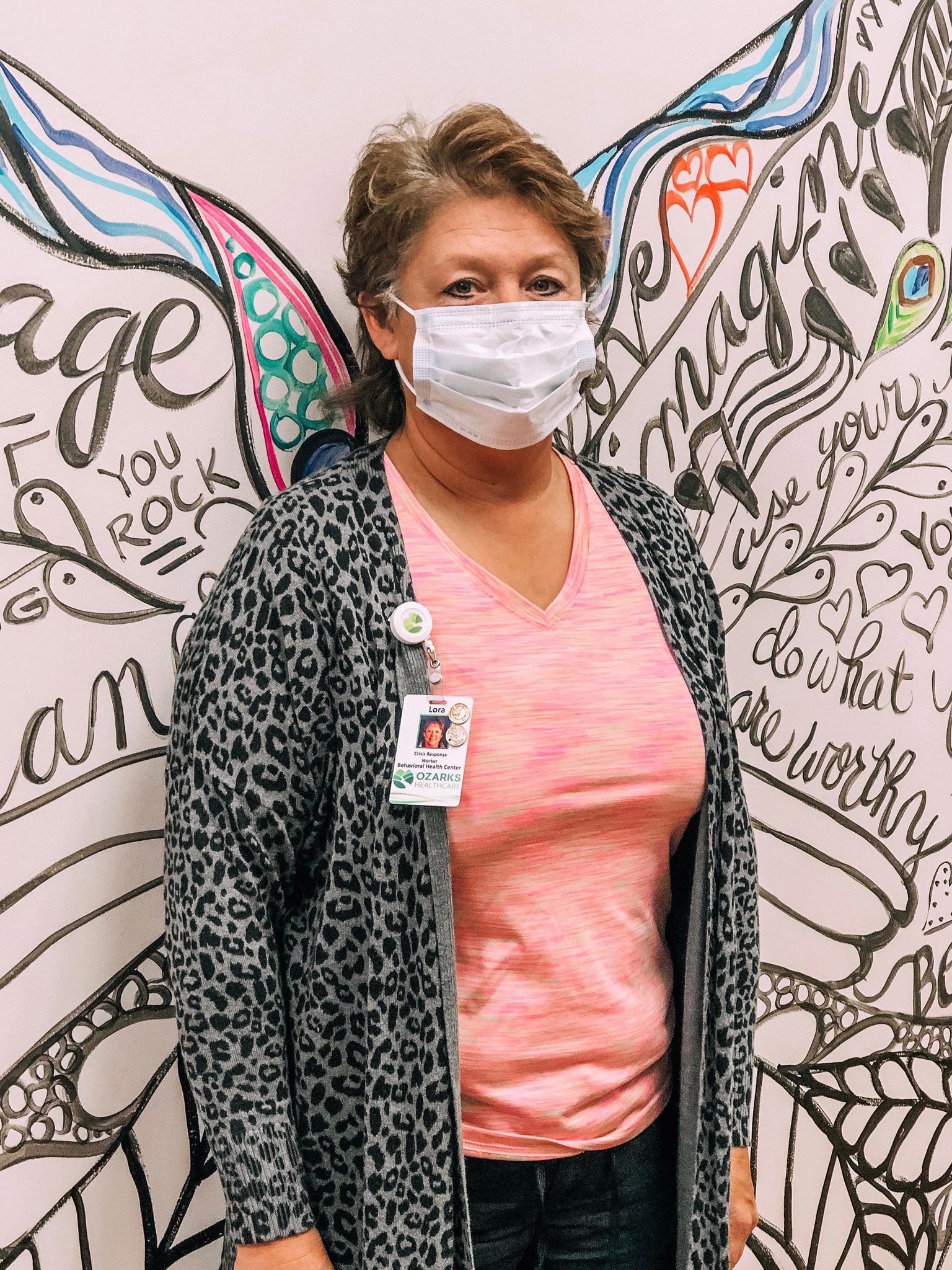Ozarks Healthcare Mental Health Therapist shares Importance of Mammograms after Personal Breast Cancer Experience
This Breast Cancer Awareness Month, we continue to share the importance of mammograms. Having been impacted directly by breast cancer, several of our own staff have decided to share their experiences with us. Following the launch of the Ozarks Healthcare Foundation’s fundraising campaign for a mobile mammography unit, Lora Hand, mental health therapist at the Ozarks Healthcare Behavioral Health Center (BHC), was especially excited to share some of her breast cancer journey in hopes of encouraging others to take the importance of screening seriously. Lora gave us permission to share the following:
“My story began before I was even born. My grandmother, who I never met, died at age 36 from breast cancer. This happened in the 1960s, when doctors were still developing new technology with radiation treatment.
My mom and I did not place a lot of thought about the disease as we both aged. I asked questions about my grandmother, who I was told I looked so much like, but I did not ask too many questions. I could tell even by my teen years that my grandmother’s loss weighed heavily on my mom’s mind. I would soon know how she felt.
Fast forward to the 1990s, and I get a dreaded phone call from my dad.
‘Sis, we are at the doctor - your mom had a biopsy. She has breast cancer.’
My world fell apart, my emotions ran wild, and I felt helpless with her and for her. My mom had a lumpectomy. The oncologist and radiologist reviewed treatment options. I am sure that her thoughts went to my grandmother and all the struggles that my mom had watched her go through with radiation … The heartache came back all over again with her loss.
My mom and dad weighed the options. There was an experimental chemo that at that time, was still in the beginning stages of trials. She and my dad discussed this as an option, thinking of my future. I would soon face the same plight as her and my grandmother. What better gift to give than giving up a part of you to help your child or someone else’s child by not having to utter the words, ‘I have breast cancer.’
Fast forward again to 2008. This is when I found a lump in my breast. It was on the same side as that of my grandmother and mom. I went to Dr. Henegar [Dr. Edward Henegar of Ozarks Healthcare in Gainesville], who was my family doctor since I was 11 years old. Together, we decided the only way that he would feel comfortable was if I would go and get a needle biopsy to confirm what was going on. I got my procedure completed within the same day.
The results came in, and I went back to Dr. Henegar’s office. He cried more than me or my husband. He gave me the biggest hug and said, ‘We will get through this together.’ He held true to his promise. He checked on me daily and received daily updates from my oncologist, Dr. Charles Morgan here at our Cancer Treatment Center, after surgery, during treatments, and after care.
I have been cancer free for 13 years. I have yearly bloodwork and mammograms to make sure everything is okay.
My mother has been cancer-free for over 30 years, and at 75 years of age, she still checks cows and rakes hay. She is my hero.
In life, we have two choices – yes or no. By not knowing your status with breast cancer, you’re not addressing the concern. If you address it sooner than later, you’re going to reap the benefits. It’s important to know your body, stay on top of screenings, and get your yearly mammogram. We are our own best advocates.”
Lora, along with several coworkers, have used their creativity and enthusiasm for breast cancer awareness all month long to help be a voice for the importance of mammograms and the Ozarks Healthcare Foundation’s fundraising efforts to purchase a mobile mammography unit. If you still need to schedule a mammogram, please call 417-257-5901. If you are interested in supporting the Ozarks Healthcare Foundation’s mobile mammography campaign, visit https://www.ozarkshealthcare.com/support-us/foundation/.
Ozarks Healthcare is a system of care encompassing primary care and specialty clinics, along with complete rehabilitation, behavioral healthcare, and home health services. While the 114-bed acute care hospital cares for more than 5,400 admissions, the entire health system has more than 364,000 patient visits annually in South Central Missouri and Northern Arkansas. For more information about Ozarks Healthcare, visit www.OzarksHealthcare.com.

Lora Hand, mental health therapist at Ozarks Healthcare Behavioral Health Center (BHC) and breast cancer survivor